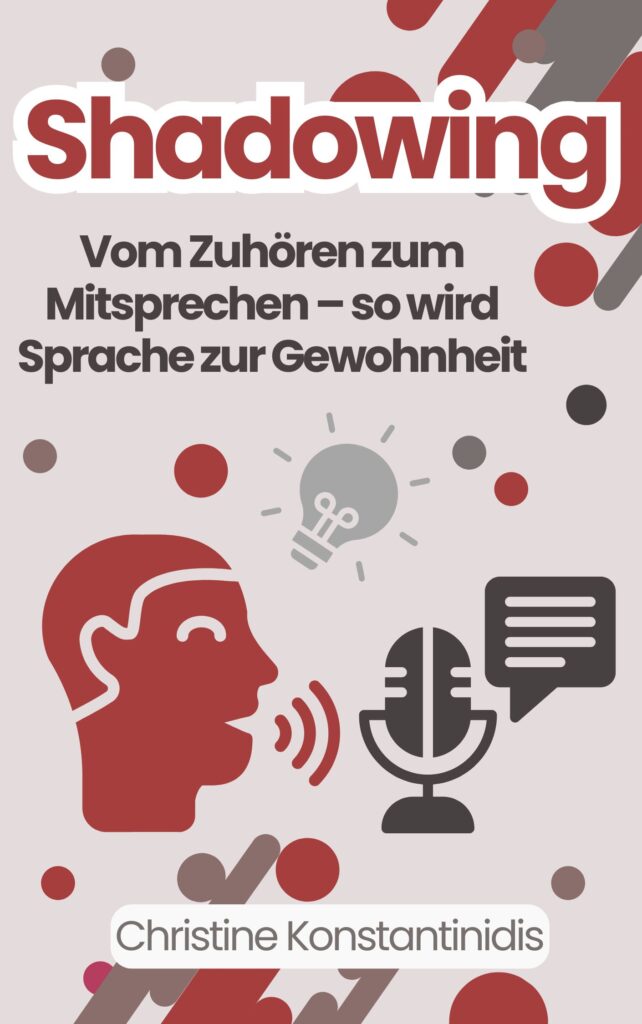
Auch heute gibt es wieder die Originalantworten in Englisch und Italienisch zur dritten Folge der Interviewserie auf meinem Blog und auf dem Blog von Sprachheld.de
Die dritte Frage lautete:
How do you set goals? Which goals do you have in language learning? How can other people support you?
Come disponi i tuoi obiettivi e quali obiettivi hai? Chi ti può aiutare e come?
Viel Spaß beim Lesen der Antworten. Die deutschen Übersetzungen findest du in den beiden oben verlinkten Artikeln.
Guilherme Castro
First of all, I love setting goals and I think it is extremely important in language learning and in life in general. I like to set my goals in the format of challenges, i.e. by saying that I have so-and-so days to study some book or some series of videos in a given language. That kind of goal is useful to help me reaching my main goal, which is usually to comprehend the language well.
Also it is important to say that when setting your goals, mainly if they are based on a challenge, you must find a happy medium between the free time you know you have and the free time you know you can make for yourself. What do I mean by that? For example, if you know that you have one hour per night to study, you must set one hour as your basis, but also think about how many 15-minutes break you have during your day that can be used for language learning.
On the other side, it’s good to avoid setting 3 hour per day if you know that you usually have just one. A happy medium is the key. This way, you will set your goals based in your real situation, at the same time that you keep pushing yourself to do a better job. By the way, fighting to accomplish that happy medium and keep going on your goals are the points where other people can support you. You can ask your language couch, your friends and family to help you keep motivated and focus on your goals.
Kirsty Major
Long term goals such as “to be able to understand a newspaper article” or “to have a 10-minute telephone conversation” or “to give a presentation in the other language” are good. However I think the mistake that a lot of people make is that they forget about the short-term goals in terms of what they want to achieve each day or week.
I organise my life with spreadsheets, so I also have one for language learning where I can gain points by doing activities that will help me meet my goals. The points are also weighted towards the activities that I least like doing – in my case speaking – to make sure that I do actually do these things, and not just the things that come more easily to me such as reading and listening.
This probably sounds more complicated than it is but however you organise it, I think it’s important to have measurable, achievable short-term goals if you want to meet the bigger, long-term ones.
In terms of other people helping, I’m a big fan of language exchanges. It’s not easy to find a really good exchange partner and I tend to work with several at once, so I’m not relying too heavily on input from one person in case they don’t have time. Still, working with other people brings language learning to life in a way that working on your own never will.
Olly Richards
I usually learn a language for one main purpose, which is to speak with native speakers of the language. As I learn, I think of things that would make me happy or proud to be able to do (such as having a 15-min conversation, reading the news, giving directions to a taxi driver) and I work very hard at achieving those specific goals without getting distracted by other things.
Jane Eggers
That’s a hard one. Most of my French and German learning was at school, so my main goals came in the form of tests and exams. Later, when I first moved to Germany, I was motivated by my needs: if I wanted to rent an apartment, I had to figure out how to achieve that. With Hindi and Italian, which I dabbled in as an adult, it was much harder in some ways, because it was just for fun. I wanted to learn them, but I didn’t have a pressing need.
Chiara Fortini
1. Si può decidere di imparare una lingua per: tenere in forma il nostro cervello.
2. per trovare nuove amicizie
3. per stare al passo con i tempi e non essere tagliati fuori dal mondo. (Oggigiorno per esempio la conoscenza dell’inglese è diventata indispensabile. Molte sono le parole inglesi che sono state introdotte nella nostra lingua madre e che ormai fanno parte del nostro linguaggio corrente in molti settori dalla politica alla scienza).
4. si può voler imparare una lingua per saper dare informazioni ai turisti stranieri che visitano il nostro paese
5. per viaggiare più facilmente
6. per darci la possibilità di vivere, studiare o lavorare all’estero
7. per avere un lavoro dove si guadagna di più.
Giulia Novali
I miei obiettivi sono stati fino a poco tempo fa di natura scolastica, per gli ottenimenti dei livelli di riconoscimento linguistico europei (dal livello base A1 a quello più alto C2), oggi sono più di natura lavorativa e personale. Delle proposte universitarie possono essere di utilità, ma una lingua va mantenuta nel tempo, e penso che la costanza e la perseveranza dipendano solo da noi stessi.
Claudia Scaringi
Porsi degli obiettivi è uno degli strumenti più efficaci che abbiamo a disposizione. Io consiglio di porsi sia obiettivi nel lungo periodo che nel breve periodo.
Gli obiettivi nel breve periodo posso essere semplici come decidere per quanto tempo studiare ogni settimana od ogni giorno. Supponiamo che decidiate di studiare 20 minuti ogni giorno, per stimolarvi a farlo ( e per non dimenticarvelo!) segnatelo nella vostra agenda o nel vostro calendario proprio come un appuntamento con un cliente o un evento a cui partecipare. Quando finirete i vostri 20 minuti di studio, segnate l’evento come “fatto„ ciò vi darà una sensazione di appagamento e vi aiuterà a tenere traccia dei vostri progressi.
Per gli obiettivi nel lungo periodo, invece, potete pensare a qualcosa come „in un mese voglio essere in grado di parlare di cosa faccio nella vita e dei miei hobby“, oppure „in 3 mesi voglio essere in grado di avere una conversazione di 15 minuti con un madrelingua“. Scrivete anche questo nel vostro agenda o nel vostro promemoria, visualizzare gli obiettivi aiuta a raggiungerli.
Das waren die Originalantworten zur dritten Interviewfrage. Die Antworten von Claudia und Guilherme in deutscher Sprache findest du bei Sprachheld.de, die Antworten von Giulia, Chiara, Olly, Kirsty und Jane bei mir auf dem Blog.
Herzliche Grüße
Christine





0 Kommentare
1 Pingback